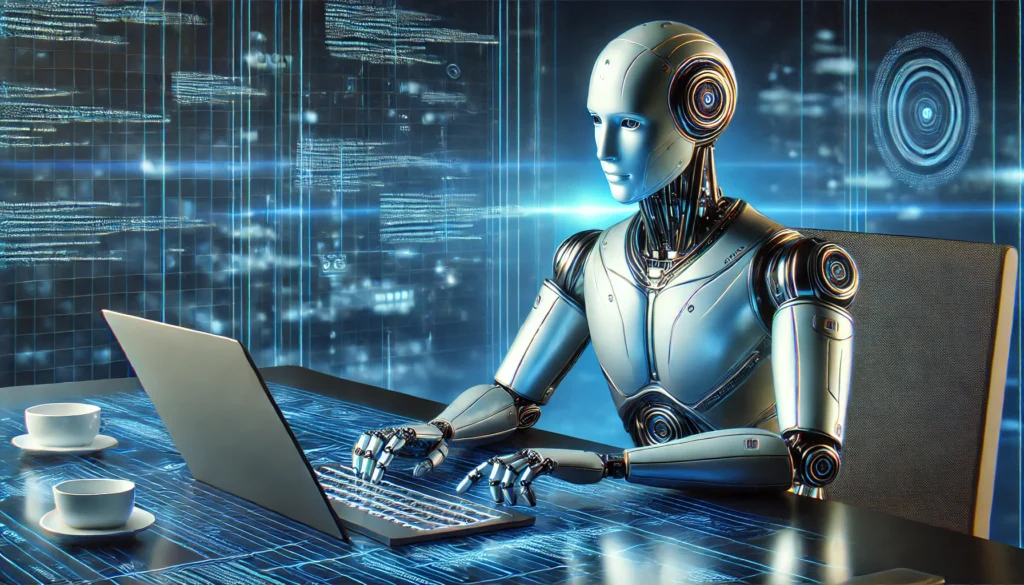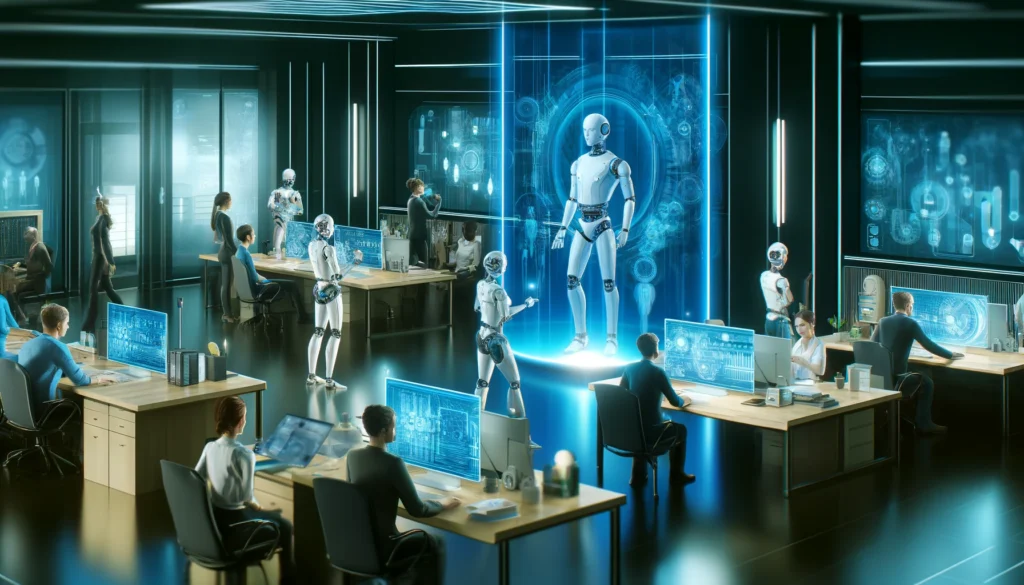As AI technology continues to advance, its impact on the workplace is becoming increasingly profound. AI automation is not just about replacing repetitive tasks; it’s about transforming the way businesses operate, making them more efficient, agile, and innovative. In this blog, we’ll explore how AI automation is reshaping business operations and what this means for the future of work.
1. Streamlining Routine Tasks
AI automation excels at handling routine tasks that would typically require significant time and resources. From data entry to invoice processing, AI can manage these activities with greater speed and accuracy, allowing human employees to focus on more strategic and creative tasks.

2. Enhancing Decision-Making
AI can analyse vast amounts of data in real-time, providing businesses with insights that drive better decision-making. By automating data analysis, companies can make informed decisions quickly, giving them a competitive edge in rapidly changing markets.

3. Improving Customer Service
AI-powered chatbots and virtual assistants are revolutionising customer service by providing instant, 24/7 support. These tools can handle a wide range of customer inquiries, from basic FAQs to complex issues, enhancing customer satisfaction and reducing the workload on human agents.

4. Facilitating Remote Work
With the rise of remote work, AI tools are playing a crucial role in ensuring teams stay connected and productive. From AI-driven project management tools to virtual collaboration platforms, AI is enabling businesses to operate smoothly, regardless of physical location.

5. Transforming HR Operations
AI is increasingly being used in HR operations to streamline recruitment, onboarding, and employee management. AI tools can screen resumes, schedule interviews, and even assess candidates’ fit based on data-driven insights, making the hiring process faster and more efficient.
Looking Ahead: The Long-Term Impact of AI Automation
As AI technology continues to evolve, its role in business operations will only grow. Companies that embrace AI automation now will be better positioned to innovate and thrive in the future. However, this shift also requires a commitment to continuous learning and adaptation, as the workforce evolves alongside these new technologies.

Conclusion
AI automation is no longer just a buzzword; it’s a driving force behind the future of work. By automating routine tasks, enhancing decision-making, and improving customer service, AI is helping businesses operate more efficiently and effectively. As we look to the future, the integration of AI in business operations will be key to staying competitive in a rapidly changing world.